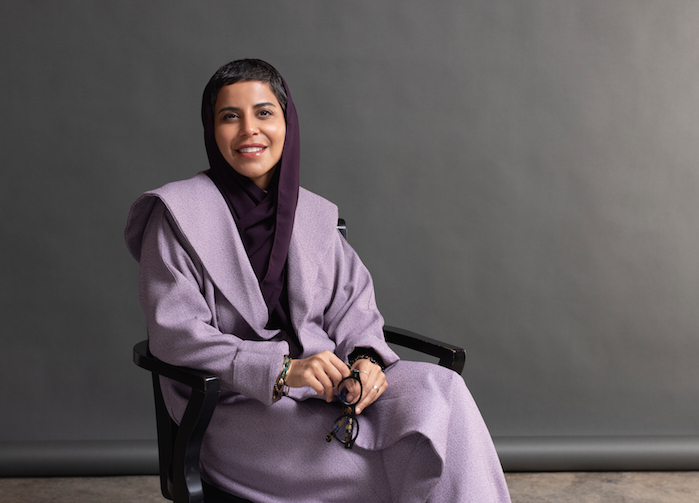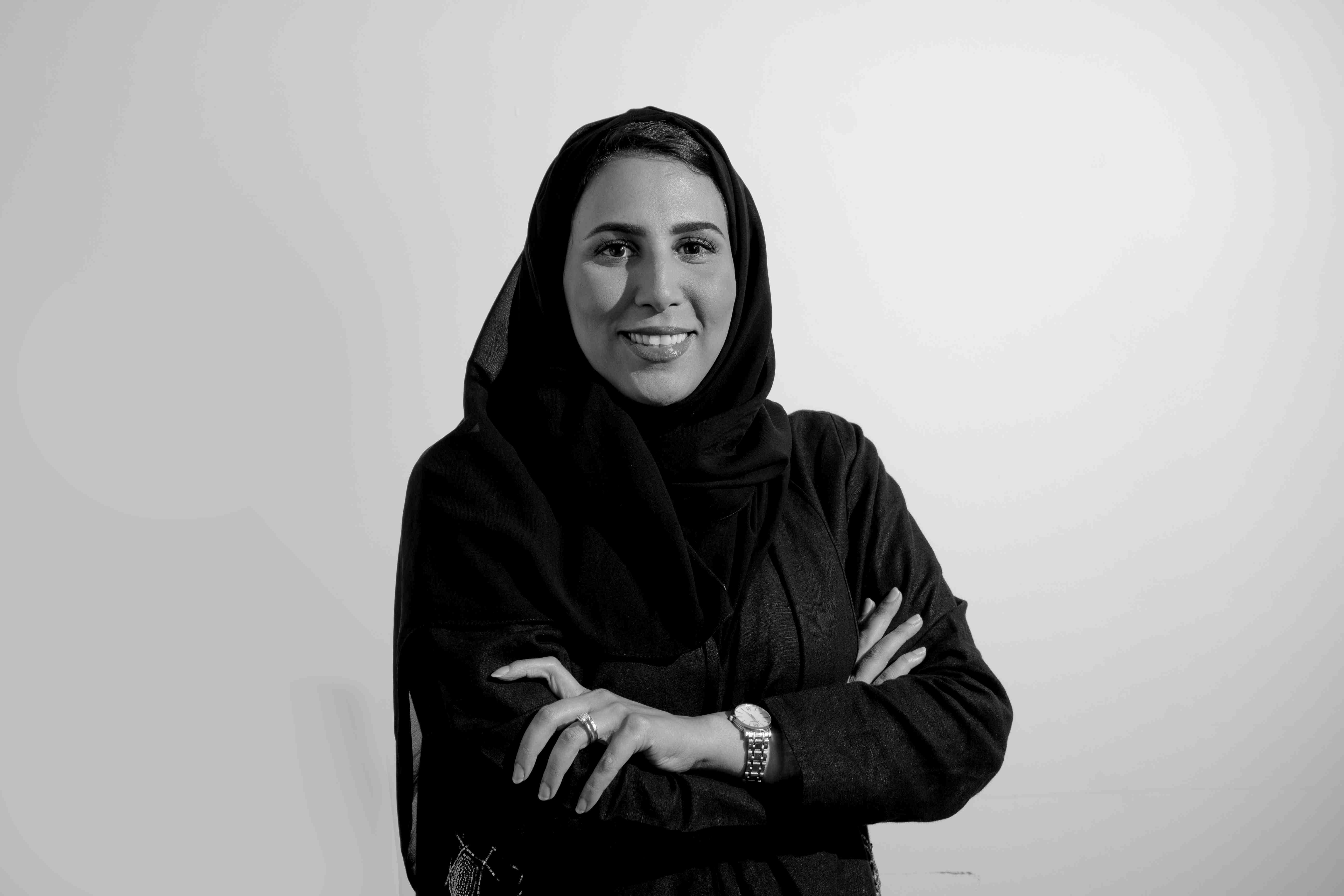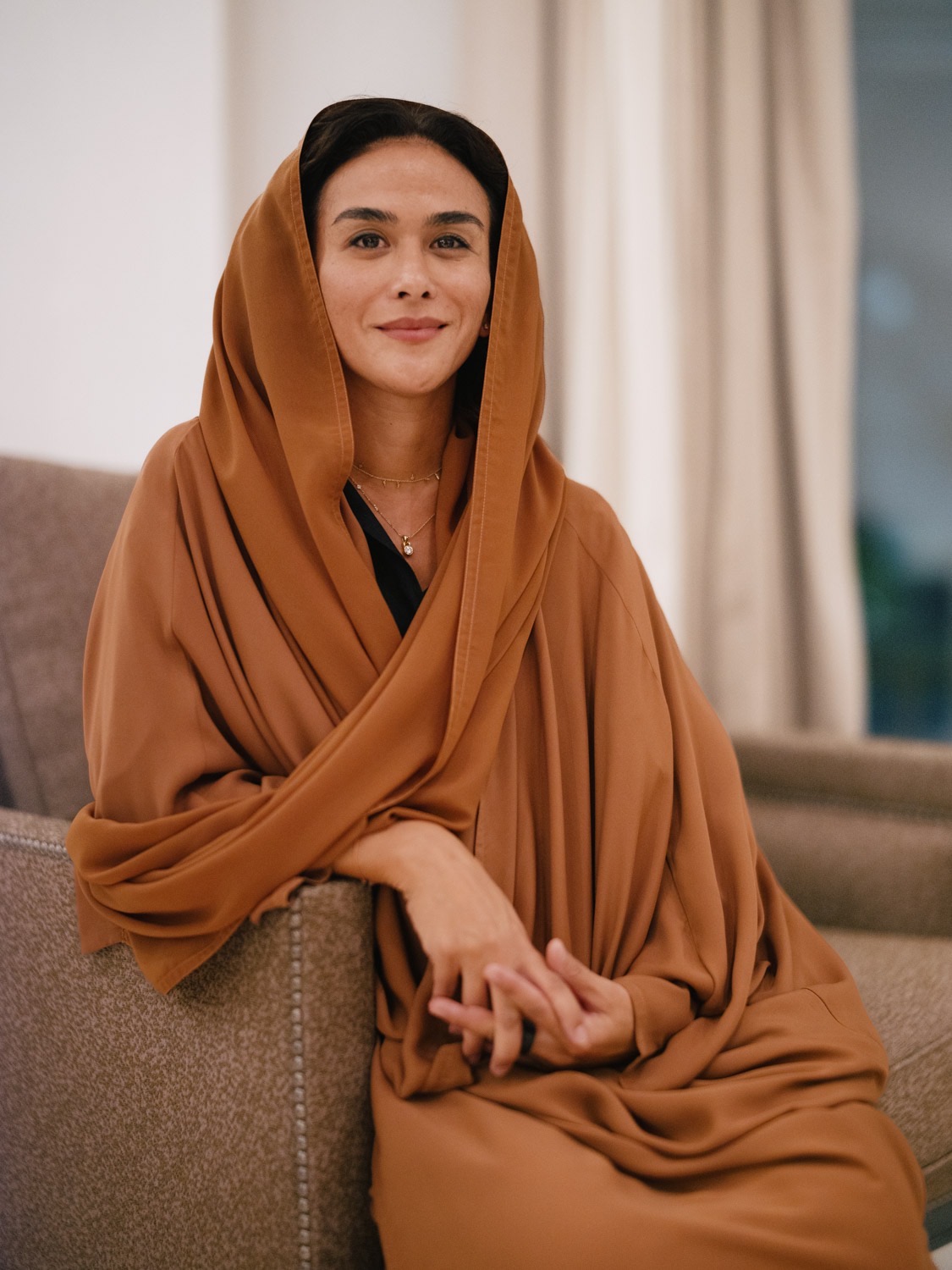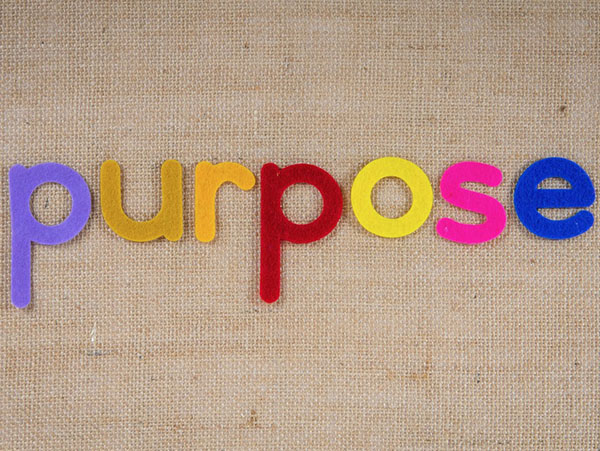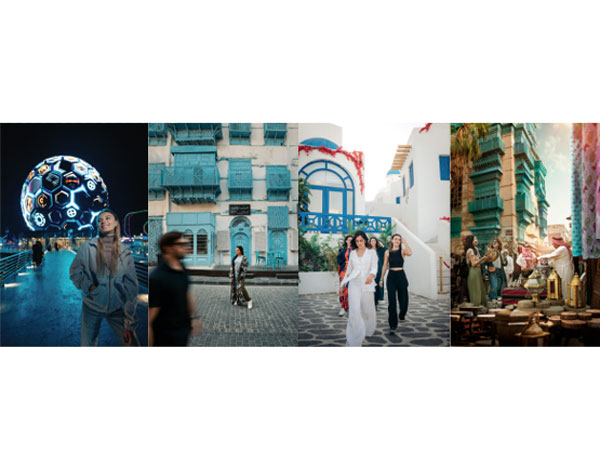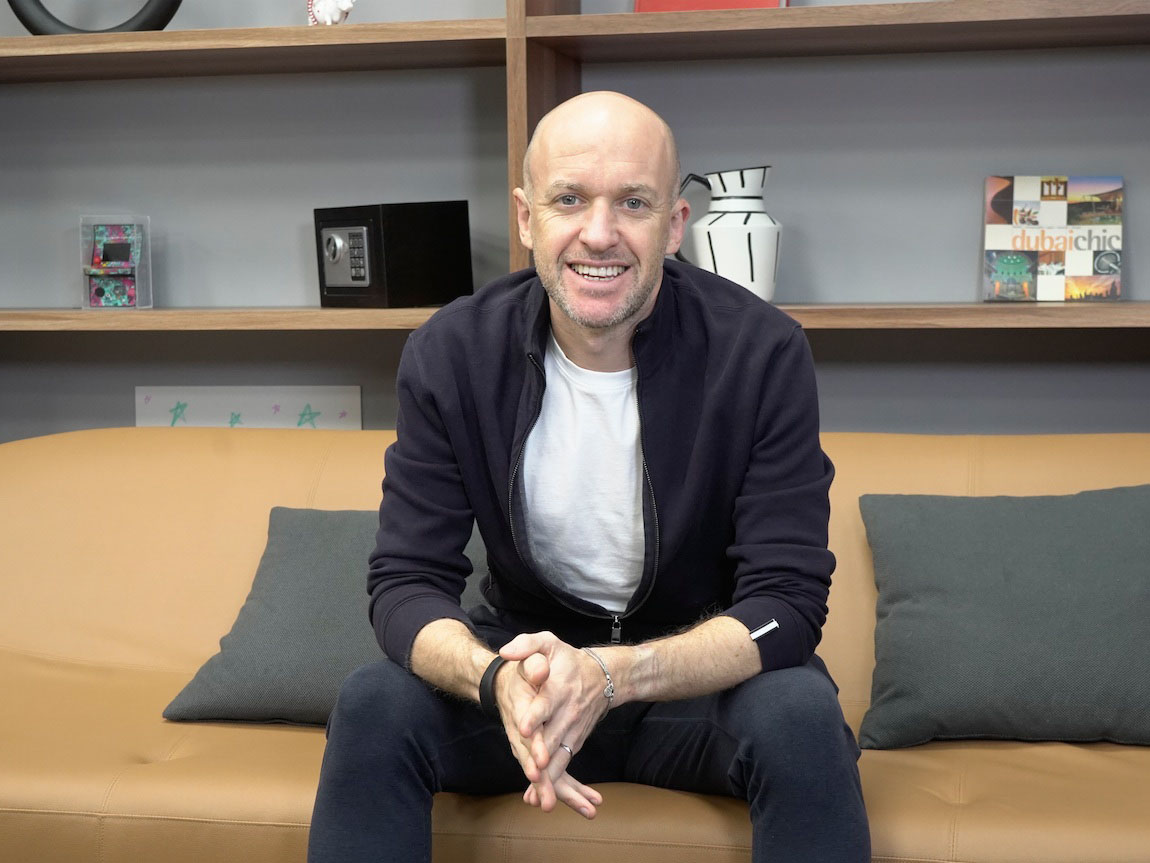Industry Talk
Women role in Saudi Arabia’s creative and entrepreneurial revolution
by Iain Akerman
December 12, 2023
.jpg) Advertisement
Advertisement
“You know, I like to compare Riyadh today to New York,” says Tala Saleh, the co-founder and chief executive of Tayb Digital. “They used to say the ‘New York minute’. But I was at a conference the other day and I referred to ‘the Riyadh second’. There’s no time. We’re building what we were supposed to build 30 years ago in 10 years. So it’s exciting. It’s very exciting.”
Saleh, who ran a boutique, female-led agency in Khobar for over 12 years prior to the launch of Tayb Digital in September, is dynamic, focussed, and driven. She is among a generation of Saudi women who are playing a pivotal role in the evolution of the kingdom, as it diversifies its economy and reduces its dependence on oil. “Women are in the forefront of this transformation,” says Saleh. Many have emerged as influential players, breaking traditional barriers, and contributing significantly to the arts, culture, media, and entertainment.
“Saudi women’s talents are leaving an indelible mark across multiple sectors,” says Abeer Alessa, the co-founder and chief executive of The Bold Group. “In the arts, women artists are gaining international acclaim, while in culture, they are at the forefront of preserving and evolving our traditions. In tourism, women are crafting experiences that showcase the kingdom’s rich heritage and inviting global audiences to explore Saudi Arabia. These contributions are not only commendable but also indicative of the nation’s progressive stride towards a diverse economy.”
Wherever you look, women are playing a vital role in Saudi Arabia’s creative and entrepreneurial revolution. Ever since Vision 2030 was unveiled by Crown Prince Mohammed Bin Salman in 2016, the country has sought to create a progressive nation capable of tapping into its social, cultural, and economic potential. Part of that transformation is a program to empower women and make gender equity, diversity, and inclusion a driving force in the kingdom’s future. In order to achieve this, an institutional, whole-of-government approach has been taken, allowing Saudi Arabia to integrate specific programs into broader initiatives aimed at promoting gender inclusion and equality.
The results of this liberalisation are evident within the country’s creative industries. Saudi women are setting up agencies, making art, directing films, launching festivals, and making music.
“With women now comprising [more than] 33 per cent of the Saudi workforce – a significant leap from just 12 per cent in 2011 – there’s a palpable increase in female-led businesses.”
—Abeer Alessa, co-founder / CEO, The Bold Group
According to the Small and Medium Enterprises General Authority (Monsha’at), women constitute almost half of the kingdom’s small and medium-sized business owners.
“Working in Saudi Arabia during this period of Vision 2030’s rollout is incredibly exciting,” says Alessa, who has grown her Riyadh-based agency to more than 100 employees. “The vision itself is a bold framework for transformative change, providing vast opportunities for the entire nation, and women are seizing these opportunities with vigour. As we look to the future, the landscape is ripe with possibilities in technology, entrepreneurship, and beyond. The coming phase promises to be even more thrilling, with the kingdom opening up new sectors for business and innovation that women are well-positioned to capitalise on.”
The number of women entering the advertising and marketing industry has increased significantly since the launch of Vision 2030, although official figures are hard to come by. “I’ve been in this industry since 2009, and most of the time I was the only female in the meeting room,” says Salwa Bankhar, business development director at The Fullstop. “There were women in the industry, but I don’t think there were a lot. Today, the majority of our agency is women. And most agencies are the same. When I visit them I’m like, ‘wow, that’s a lot of girls’. And I’m seeing more women in board meetings. That just makes me so happy.
“We’re still a minority when it comes to top level management, but we’re getting there and I’m sure it’s going to happen soon. We’re moving at a very fast pace and that’s the vision of our country right now. We have to keep up with everything that’s happening. What I’m absolutely grateful for is that the opportunities are limitless. No one in this industry can tell you that they’re not working. Everyone has an opportunity to be part of something.”
According to the General Authority for Statistics’ labour force survey, the participation of Saudi women in the workforce stood at 35.3 per cent in the second quarter of this year. Although the majority work in the public sector, private sector participation has increased, according to the National Labor Observatory. In May, the number of women in the private sector surpassed the 900,000 mark for the first time. That figure represented a 14.4 per cent increase compared with the same period in the previous year. The sector with the highest percentage of female employees is education, with 53 per cent employed in this field. In total, Saudi women now represent nine per cent of the total private sector workforce.
“The advancement of women in Saudi Arabia is more than a social change – it’s an economic one,” says Alessa. “With women now comprising [more than] 33 per cent of the Saudi workforce – a significant leap from just 12 per cent in 2011 – there’s a palpable increase in female-led businesses. Moreover, women now hold 20 per cent of the seats in the Consultative Assembly, indicating a broader change in the socio-economic landscape that is conducive to creative and entrepreneurial ventures led by women.”
“I’ve been in this industry since 2009, and most of the time I was the only female in the meeting room. Today, the majority of our agency is women.”
—Salwa Bankhar, business development director, The Fullstop
Nothing’s perfect, of course. Do barriers remain?
“I don’t believe so,” replies Bankhar. “It’s an open playing field. It really just depends on the person themselves and if they’re willing to join in. The creative industry is very competitive and very dynamic. So any individual – male or female – should really ask themselves this question: ‘Am I up for the challenge?’ Because the foundation is there. It’s just a matter of whether you are willing to jump in and join this transformation.”
Saleh offers a different perspective. “I would say most of the barriers are cultural,” she says. “They’re not to do with what the country is offering. Not at all. It’s more about how people see women in the workforce, or if certain families believe their women should work. The government has created ample opportunity for women to enter the workforce in any field. You have female scientists, you have bioengineers; you have Saudi women studying all across the globe. So the barriers are all cultural.”
“We’re building what we were supposed to build 30 years ago in 10 years. So it’s exciting. It’s very exciting.” —
Tala Saleh, co-founder / CEO, Tayb Digital
What is clear, says Alessa, is that women “have always been an intrinsic and valued part of Saudi society, making substantial contributions across various sectors throughout history”. This “deep-rooted involvement is not a new phenomenon but a continuous and essential aspect of our culture”. “As we embrace Vision 2030, women’s roles are set to expand even further,” she adds. “They are taking on leadership positions and venturing into entrepreneurship, which will undoubtedly foster positive changes that benefit our entire society. This ongoing and enduring contribution exemplifies our commitment to inclusivity and prosperity, aligning seamlessly with our nation’s vision and values.”
Saleh agrees, although she stresses the collective commitment so Saudi Arabia. “I think we’re building it together. Male and female,” says Saleh. “It’s not about our women building it or our men building it. No, we’re all building it together. We speak the same language, we have the same goals, we’re in the same conversation. And that’s what will push our society further, push our creative further, and allow us to reach the goals we’ve set ourselves. It’s an equal conversation. It’s no longer a segregated conversation. And I think that’s very, very important.”


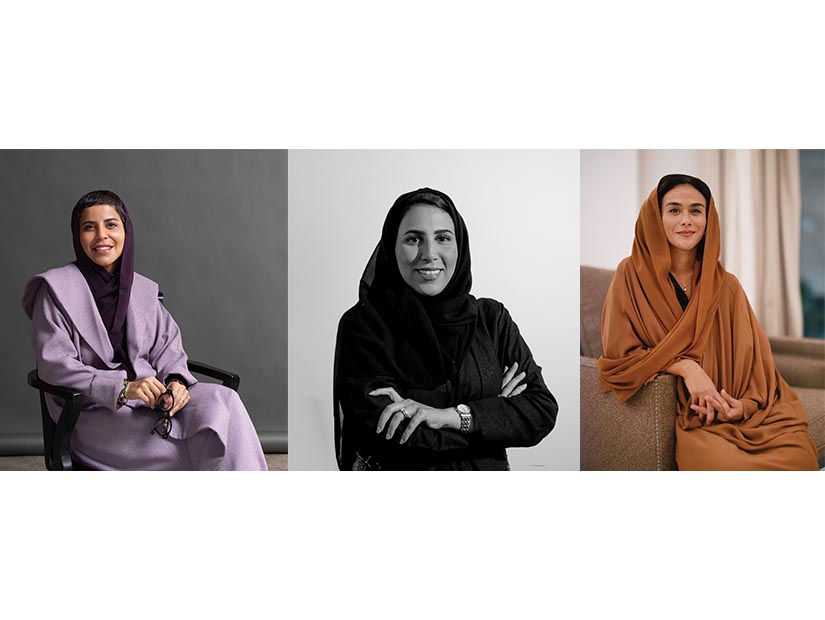
.jpg)
